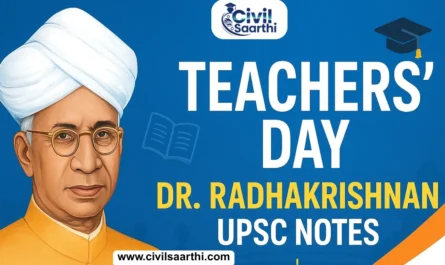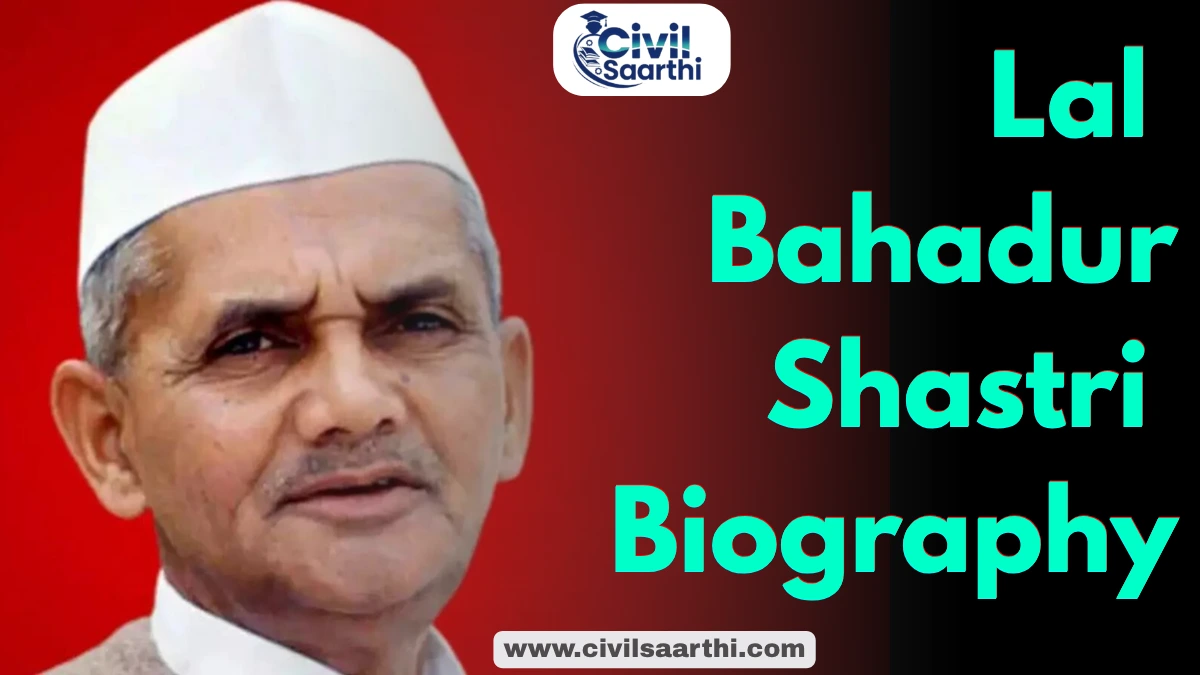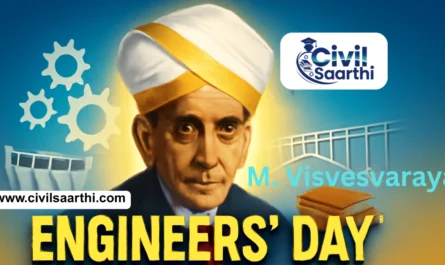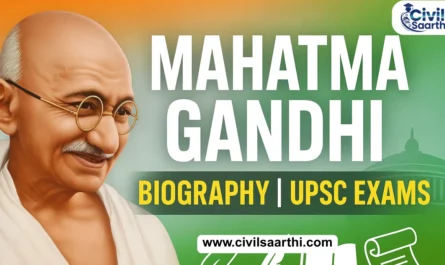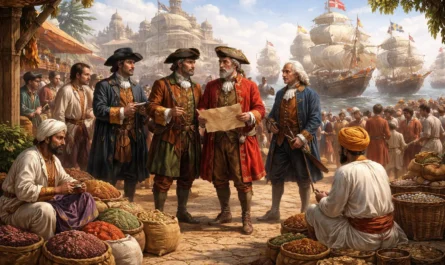Gandhi Jayanti is celebrated on 2nd October every year to honor the birth anniversary of Mahatma Gandhi, the Father of the Nation. Known for his philosophy of truth (Satya) and non-violence (Ahimsa), Gandhi transformed India’s freedom struggle into a mass movement. The United Nations also recognizes this day as the International Day of Non-Violence, making it significant at both the national and global level. Gandhi Jayanti 2025 marks the 156th birth anniversary of Mahatma Gandhi.
Gandhi Jayanti 2025: Date, Significance, and Celebration
Gandhi Jayanti is one of the three official national holidays in India, celebrated with prayers, tributes, and community events. It reminds citizens of Gandhi’s unmatched role in securing independence through peace and non-violence.
This year, Gandhi Jayanti 2025 will be celebrated on Thursday, 2nd October. Across India, schools, colleges, and institutions organize cultural events, while leaders pay homage at Raj Ghat in New Delhi.
Why Gandhi Jayanti is Celebrated?
The purpose of Gandhi Jayanti is to pay respect to Mahatma Gandhi’s principles and his leadership in India’s freedom struggle. It also inspires younger generations to follow values of truth, simplicity, and compassion.
How Gandhi Jayanti is Celebrated in India?
From prayer services and peace marches to essay competitions and digital campaigns, Gandhi Jayanti is marked with enthusiasm across the nation. Leaders visit Gandhi memorials, while communities promote harmony and unity.
Mahatma Gandhi Biography: Early Life and Education
Mahatma Gandhi’s life journey is a tale of courage, simplicity, and sacrifice. His childhood in Gujarat, education in London, and experiences in South Africa shaped his ideas of equality and justice.
Born on 2nd October 1869 in Porbandar, Gandhi studied law in London and later fought against racial discrimination in South Africa. Returning to India in 1915, he soon became the guiding force of India’s freedom struggle.
Mahatma Gandhi’s Role in India’s Freedom Struggle
Gandhi’s leadership transformed India’s independence movement into a mass struggle rooted in non-violence. His method of Satyagraha empowered common people to fight against colonial injustice peacefully.
Through movements like Champaran Satyagraha, Non-Cooperation, Salt March, and Quit India, Gandhi mobilized millions. His peaceful strategies weakened British authority and united Indians under one banner.
1. Champaran Satyagraha (1917)
This was Gandhi’s first major movement in India. Indigo farmers in Bihar were suffering under exploitative conditions. Gandhi’s intervention brought relief to peasants and showcased the power of non-violent resistance.
2. Kheda Satyagraha (1918)
In Gujarat, farmers faced famine and heavy taxation. Gandhi led them in refusing to pay unjust revenue. The British had to relax tax collection, strengthening his reputation as a people’s leader.
3. Non-Cooperation Movement (1920–22)
After the Jallianwala Bagh massacre, Gandhi launched this nationwide protest. Indians boycotted British goods, schools, and institutions. Though it was suspended after the Chauri Chaura incident, it ignited a spirit of unity.
4. Salt Satyagraha (Dandi March, 1930)
The historic 240-mile march to Dandi became a symbol of defiance against the British salt tax. Gandhi made salt from seawater, inspiring millions to join the Civil Disobedience Movement.
5. Quit India Movement (1942)
During World War II, Gandhi demanded immediate independence. His slogan “Do or Die” spread across India, making this movement the final push that eventually led to freedom in 1947.
Table: Major Movements Led by Mahatma Gandhi
| Movement | Year | Place | Cause | Outcome |
|---|---|---|---|---|
| Champaran Satyagraha | 1917 | Bihar | Indigo farmers’ exploitation | Relief for peasants |
| Kheda Satyagraha | 1918 | Gujarat | Famine & tax burden | Tax relaxation |
| Non-Cooperation | 1920-22 | Nationwide | Jallianwala Bagh, Rowlatt Act | Strengthened mass movement |
| Salt March | 1930 | Gujarat to Dandi | Salt tax | Boosted Civil Disobedience |
| Quit India | 1942 | Nationwide | Demand for immediate independence | Final stage of struggle |
Famous Quotes of Mahatma Gandhi
Gandhi’s words continue to inspire generations worldwide. His quotes emphasize peace, humanity, and the power of individual action in changing society.
Here are some timeless Gandhi quotes that remain relevant even today:
“Be the change that you wish to see in the world.”
“An eye for an eye will only make the whole world blind.”
“The best way to find yourself is to lose yourself in the service of others.”
“Live as if you were to die tomorrow. Learn as if you were to live forever.”
“Non-violence is the greatest force at the disposal of mankind.”
“In a gentle way, you can shake the world.”
Gandhi’s Philosophy and Global Influence
Mahatma Gandhi’s philosophy went far beyond India. His emphasis on truth, non-violence, and simplicity inspired global leaders and movements fighting injustice.
Figures like Martin Luther King Jr., Nelson Mandela, and Aung San Suu Kyi adopted his methods. Today, his principles are seen as guiding lights in resolving international conflicts peacefully.
Gandhi Jayanti Essay (Short & Long)
Essays on Gandhi Jayanti are often asked in schools and competitions. A short essay helps express basic facts, while a long essay highlights his life, teachings, and contribution to independence.
Short Essay on Gandhi Jayanti (200 Words)
Gandhi Jayanti is celebrated on 2nd October every year to mark the birth anniversary of Mahatma Gandhi, the Father of the Nation. He was born in 1869 in Porbandar, Gujarat, and played a vital role in India’s freedom struggle. His philosophy of truth (Satya) and non-violence (Ahimsa) made him one of the greatest leaders in history.
Gandhi led several important movements against British rule such as the Champaran Satyagraha, Non-Cooperation Movement, Salt March, and Quit India Movement. His method of non-violent protest united millions of Indians in the fight for independence. Unlike other leaders, Gandhi believed that freedom could be achieved without violence.
On Gandhi Jayanti, people across India pay tribute to him through prayer services, peace marches, cultural programs, and speeches. Leaders and citizens gather at Raj Ghat in New Delhi to honor his memory. The United Nations also observes this day as the International Day of Non-Violence, which shows the global importance of his teachings.
Gandhi Jayanti is not just a national holiday but also a reminder of the values of peace, truth, and simplicity. His life continues to inspire people across the world to live with honesty, harmony, and compassion.
Long Essay on Gandhi Jayanti (500+ Words)
Introduction
Gandhi Jayanti is celebrated every year on 2nd October to commemorate the birth anniversary of Mahatma Gandhi, one of the greatest leaders in world history. Popularly known as the Father of the Nation, Gandhi dedicated his entire life to India’s freedom struggle and to spreading the principles of truth (Satya), non-violence (Ahimsa), and peace. The day is observed not only in India but also globally as the International Day of Non-Violence, declared by the United Nations.
Early Life of Mahatma Gandhi
Mahatma Gandhi, originally named Mohandas Karamchand Gandhi, was born on 2nd October 1869 in Porbandar, Gujarat. After completing his early education in India, he went to London to study law. Later, in South Africa, he experienced racial discrimination, which deeply influenced his thoughts. It was here that Gandhi developed the idea of Satyagraha, meaning the force of truth, which later became the foundation of his struggles in India.
Gandhi’s Role in India’s Freedom Struggle
Mahatma Gandhi returned to India in 1915 and soon became the leader of the national movement against British rule. He led many movements that played a crucial role in India’s independence:
Champaran Satyagraha (1917): Helped indigo farmers against exploitation in Bihar.
Kheda Satyagraha (1918): Supported farmers who could not pay taxes due to famine.
Non-Cooperation Movement (1920-22): Urged Indians to boycott British goods and institutions.
Salt March (1930): A 240-mile march to protest against the unjust salt tax.
Quit India Movement (1942): A call for immediate independence with the slogan “Do or Die”.
Through these movements, Gandhi proved that non-violent struggle could be stronger than armed resistance. His efforts united Indians of all classes, religions, and regions.
Celebration of Gandhi Jayanti
Gandhi Jayanti is observed as a national holiday across India. Schools, colleges, and government institutions organize programs such as debates, speeches, essay competitions, and plays based on Gandhi’s life. At Raj Ghat in New Delhi, the Prime Minister, President, and other leaders pay floral tributes to Gandhi. Peace marches and community services are also organized to spread his message of harmony.
Global Significance of Gandhi’s Teachings
Gandhi’s philosophy inspired many world leaders such as Martin Luther King Jr. in the USA, Nelson Mandela in South Africa, and Aung San Suu Kyi in Myanmar. His ideas of non-violence and civil disobedience continue to influence movements for justice, equality, and peace across the globe.
Relevance of Gandhi’s Ideals Today
In the modern world, Gandhi’s values remain more relevant than ever. His call for non-violence is crucial in times of global conflicts and wars. His emphasis on simplicity and sustainable living is vital in today’s fight against climate change. His idea of communal harmony is essential for maintaining unity in a diverse country like India.
Conclusion
Gandhi Jayanti is not only a celebration of Mahatma Gandhi’s birth but also a reminder of the timeless values he stood for. His contribution to India’s independence and his teachings of truth, non-violence, and peace make him a leader for all generations. On this day, we should pledge to follow his principles in our daily lives and work towards building a world based on justice, unity, and compassion.
Gandhi Jayanti Speech (For Students and Teachers)
Speeches on Gandhi Jayanti are common in schools and colleges. They are an effective way to inspire students and spread Gandhian values.
Sample Speech:
“Respected teachers and my dear friends,
Today we gather to celebrate Gandhi Jayanti, the birthday of Mahatma Gandhi, the Father of our Nation. Gandhi Ji taught us the power of truth and non-violence. He fought against British rule not with weapons but with peace, simplicity, and determination. His movements like the Salt March and Quit India inspired millions. On this day, let us pledge to follow his values in our daily life and contribute to building a peaceful and united India. Thank you.”
Relevance of Gandhi’s Teachings in Today’s World
Even in today’s modern era, Gandhi’s teachings are highly relevant. His focus on peace, harmony, and sustainability is crucial in a world struggling with violence and climate change.
Non-Violence: Needed for resolving global wars and disputes.
Sustainability: His simple lifestyle aligns with eco-friendly living.
Communal Harmony: Encourages unity in diversity.
Self-Reliance: Matches India’s vision of Atmanirbhar Bharat.
FAQs on Gandhi Jayanti
Q1. When is Gandhi Jayanti celebrated?
Ans: Every year on 2nd October.
Q2. Why is Gandhi Jayanti celebrated?
Ans: To honor Mahatma Gandhi’s birth anniversary and his role in India’s freedom struggle.
Q3. Which movements were led by Mahatma Gandhi?
Ans: Champaran Satyagraha, Kheda Satyagraha, Non-Cooperation Movement, Salt March, Quit India Movement.
Q4. What is the theme of Gandhi Jayanti 2025?
Ans: The expected theme is “Non-Violence and Sustainability”.
Q5. Is Gandhi Jayanti a national holiday?
Ans: Yes, it is a national holiday in India.
Q6. Why is Gandhi called the Father of the Nation?
Ans: Because of his leadership in India’s freedom struggle through truth and non-violence.

